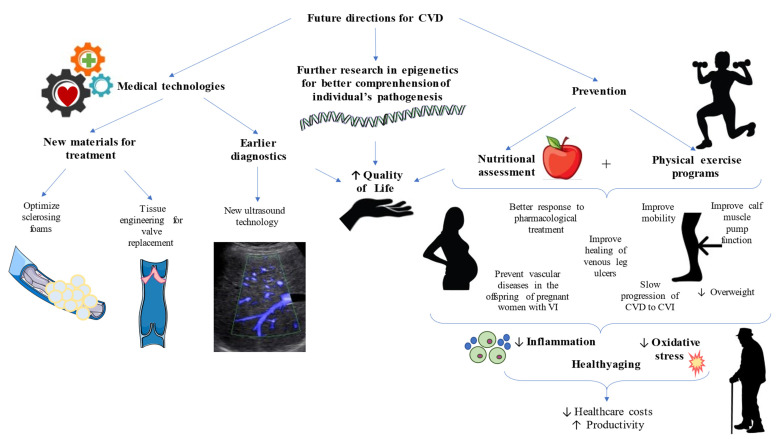Figure 5.
Future directions for CVD. The emergence of novel therapeutic or diagnostic methods are playing a key role in the clinical management of the patients with CVD. However, it is equally important to “deep” on the epigenetic and individual mechanisms, to allow for better comprehension of the disease, opening the possibilities of novel translational approaches. Perhaps one of the most disregarded and important factors are encompassed around prevention. In this sense, nutritional assessment and physical exercise could be powerful tools in the handle of patients affected by CVD, as they might favorably regulate clinical signs, pathophysiological mechanisms, such as inflammation or oxidative stress, and even psychological variables. Overall, these points will be crucial to improve the QOL of the patients, which might be particularly vulnerable by other variables (e.g., pregnant women or elder people).

